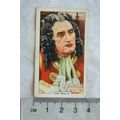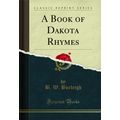Aircraft - Fokker DV11F World War 1 biplane - postcard
- Condition : Used
- Dispatch : 2 Days
- Brand : None
- ID# : 93648301
- Quantity : 1 item
- Views : 656
- Location : United Kingdom

- Seller : justthebook (+1704)
- Barcode : None
- Start : Sat 23 Feb 2013 20:51:24 (BST)
- Close : Run Until Sold
- Remain : Run Until Sold
More Listings from This Seller view all
Seller's Description
- Postcard
- Picture / Image: Fokker DV11F plane
- Publisher: Imperial War Museum c.1970s/80s
- Postally used: no
- Stamp: n/a
- Postmark(s): n/a
- Sent to: n/a
- Notes / condition:
Please ask if you need any other information and I will do the best I can to answer.
------------------------------------------------
Postage & Packing:
UK (incl. IOM, CI & BFPO): 99p
Europe: £1.60
Rest of world (inc. USA etc): £2.75
No additional charges for more than one postcard. You can buy as many postcards from me as you like and you will just pay the fee above once. (If buying postcards with other things such as books, please contact or wait for invoice before paying).
Payment Methods:
UK - PayPal, Cheque (from UK bank) or postal order
Outside UK: PayPal ONLY (unless otherwise stated) please. NO non-UK currency checks or money orders (sorry).
NOTE: All postcards are sent in brand new stiffened envelopes which I have bought for the task. These are specially made to protect postcards and you may be able to re-use them. In addition there are other costs to sending so the above charge is not just for the stamp!
I will give a full refund if you are not fully satisfied with the postcard.
----------------------------------------------
Text from the free encyclopedia WIKIPEDIA may appear below to give a little background information (internal links may not work) :
*************
Fokker D.VII was a German World War I fighter aircraft designed by Reinhold Platz of the Fokker-Flugzeugwerke. Germany produced around 3,300 D.VII aircraft in the summer and autumn of 1918. In service, the D.VII quickly proved itself to be a formidable aircraft. The Armistice ending the war specifically required Germany to surrender all D.VIIs to the Allies at the conclusion of hostilities.[1] Surviving aircraft saw continued widespread service with many other countries in the years after World War I.
Fokker's chief designer, Reinhold Platz, had been working on a series of experimental planes, the V-series, since 1916. These planes were characterized by the use of cantilever wings, first developed during Fokker's government-mandated collaboration with Hugo Junkers. Junkers had originated the idea in 1915 with the first all-metal aircraft, the Junkers J 1, nicknamed Blechesel (""Sheet Metal Donkey"" or ""Tin Donkey""). The resulting wings were thick, with a rounded leading edge. This gave greater lift and more docile stalling behavior than conventional thin wings.
Late in 1917, Fokker built the experimental V 11 biplane, fitted with the standard Mercedes D.IIIa engine. In January 1918, Idflieg held a fighter competition at Adlershof. For the first time, frontline pilots would directly participate in the evaluation and selection of new fighters. Fokker submitted the V 11 along with several other prototypes. Manfred von Richthofen flew the V 11 and found it tricky, unpleasant, and directionally unstable in a dive. In response to these complaints, Reinhold Platz lengthened the rear fuselage by one structural bay, and added a triangular fixed vertical fin in front of the rudder. Upon flying the modified V 11, Richthofen praised it as the best aircraft of the competition. It offered excellent performance from the outdated Mercedes engine, yet it was safe and easy to fly. Richthofen's recommendation virtually decided the competition, but he was not alone in recommending it. Fokker immediately received a provisional order for 400 production aircraft, which were designated D.VII by Idflieg.
Fokker's factory was not up to the task of meeting all D.VII production orders. Idflieg therefore directed Albatros and AEG to build the D.VII under license, though AEG did not ultimately produce any aircraft. Because the Fokker factory did not use detailed plans as part of its production process, Fokker simply sent a completed D.VII airframe for Albatros to copy. Albatros paid Fokker a five percent royalty for every D.VII built under license. Albatros Flugzeugwerke and its subsidiary, Ostdeutsche Albatros Werke (OAW), built the D.VII at factories in Johannisthal (designated Fokker D.VII (Alb)) and Schneidemühl (Fokker D.VII (OAW)), respectively. Aircraft markings included the type designation and factory suffix, immediately before the individual serial number.
Some parts were not interchangeable between aircraft produced at different factories, even between Albatros and OAW.[2] Additionally each manufacturer tended to differ in nose paint styles. OAW produced examples were delivered with distinctive mauve and green splotches on the cowling. All D.VIIs were produced with the lozenge camouflage covering except for early Fokker-produced D.VIIs, which had a streaked green fuselage. Factory camouflage finishes were often overpainted with colorful paint schemes or insignia for the Jasta, or the individual pilot.
Albatros soon surpassed Fokker in the quantity and workmanship quality of aircraft produced[citation needed]. With a massive production program, over 3,000 to 3,300 D.VII aircraft were delivered from all three plants, considerably more than the commonly quoted but incorrect production figure of 1,700[citation needed].
In September 1918, eight D.VIIs were delivered to Bulgaria. Late in 1918, the Austro-Hungarian company MÁG (Magyar Általános Gépgyár - Hungarian General Machine Company) commenced licensed production of the D.VII with Austro-Daimler engines. Production continued after the end of the war, with as many as 50 aircraft completed.[3]
type=printed postcards
theme=transportation
sub-theme=air
number of items=single
period=1945 - present
postage condition=unposted
Listing Information
| Listing Type | Gallery Listing |
| Listing ID# | 93648301 |
| Start Time | Sat 23 Feb 2013 20:51:24 (BST) |
| Close Time | Run Until Sold |
| Starting Bid | Fixed Price (no bidding) |
| Item Condition | Used |
| Bids | 0 |
| Views | 656 |
| Dispatch Time | 2 Days |
| Quantity | 1 |
| Location | United Kingdom |
| Auto Extend | No |



 for 1 item(s)
for 1 item(s)
















